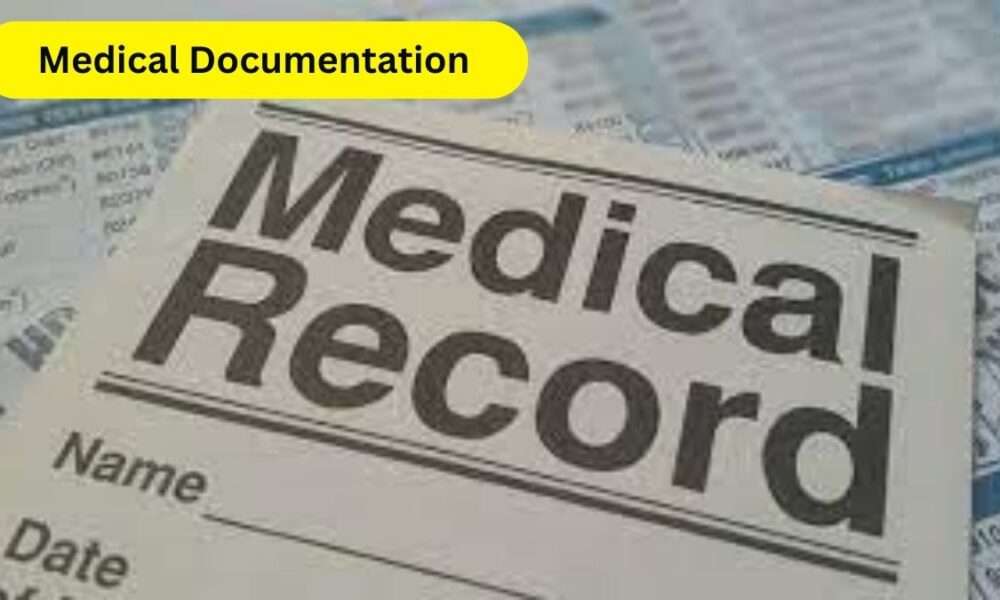The methodical recording of patient data and healthcare-related activities is known as medical documentation. It is essential to provide knowledgeable, secure, and efficient patient care. We shall examine several facets of this important technique in this post.
Importance of Accurate Medical Documentation
It is impossible to exaggerate the significance of precise medical recordkeeping. It serves as the foundation for well-informed decision-making, offers a historical account of a patient’s medical history, and facilitates the accurate diagnosis and treatment of medical disorders.
Types of Medical Documents
EHRs or electronic health records
The maintenance and accessibility of patient data by healthcare practitioners has been completely transformed by electronic health records, or EHRs. These digital records improve the effectiveness of healthcare delivery, lower mistakes, and provide real-time updates.
Paper-based Records
While EHRs have gained popularity, paper-based records still play a role in some healthcare settings. They serve as a tangible backup, ensuring that patient information remains accessible in case of technical issues.
The Role of Medical Documentation in Patient Care
The link between healthcare professionals that ensures continuity of treatment is medical documentation. It offers a thorough understanding of a patient’s medical background, current conditions, and results.
The Ethical and Legal Considerations of Medical Records
Healthcare providers are legally and ethically bound to maintain accurate and confidential patient records. Breach of patient confidentiality or inaccurate documentation can have serious consequences.
Challenges in Medical Documentation
Despite its importance, medical documentation faces challenges such as time constraints, the potential for errors, and resistance to change in healthcare practices.
Best Practices for Medical Documentation
Implementing best practices, such as standardized documentation formats, can streamline the process and enhance the quality of records. Regular audits and training can help maintain accuracy.
Impact of Technology on Medical Documentation
Technology, including speech recognition, artificial intelligence, and mobile apps, has transformed the way medical documentation is created and managed.
Ensuring Privacy and Security in Medical Records
Protecting patient data from unauthorized access or breaches is a top priority. Robust security measures and strict access controls are essential.
The Benefits of Efficient Medical Documentation
Efficiency in medical documentation is a win-win situation for both healthcare providers and patients. Some of the notable benefits include:
Time Savings
Streamlined documentation processes save time, allowing healthcare providers to spend more of it with patients. This results in improved patient satisfaction and quality of care.
Reduced Administrative Burden
Automated features in electronic health records reduce the administrative workload. This frees up healthcare professionals to focus on clinical care.
Better Collaboration
Shared digital records make it easier for different healthcare providers to collaborate on patient care. Specialists, nurses, and primary care physicians can access the same information in real-time.
Data Accuracy
Electronic records often come with built-in checks for accuracy, reducing the likelihood of errors compared to manual, paper-based documentation.
Training and Education in Medical Documentation
Proper training and ongoing education for healthcare professionals are vital to ensure that they understand the importance of accurate and timely documentation.
Future Trends in Medical Documentation
The future of medical documentation promises even greater integration, interoperability, and mobility. Healthcare providers can expect:
Interoperability
Efforts are ongoing to make different electronic health record systems more compatible, allowing for seamless sharing of information.
Telemedicine
The rise of telemedicine has highlighted the importance of mobile and accessible documentation systems.
Artificial Intelligence (AI)
AI-powered tools are likely to become more prevalent in medical documentation, automating routine tasks and flagging potential issues.
Patient Access
Transparency and patient involvement in their care will likely be promoted by increased patient access to their own health records.
Medical documentation will continue to play a crucial role in delivering high-quality treatment and adjusting to changing demands as the healthcare sector changes.
Case Study: Successful Implementation of EHR
Examine a real-world instance of a medical facility that effectively adopted electronic health records (EHRs) and the benefits it provided for patient care.
Conclusion
Medical documentation are essential to contemporary healthcare. It guarantees patient safety, empowers healthcare professionals to make well-informed decisions, and raises the standard of care generally. Adopting best practices in medical recordkeeping is crucial as the healthcare landscape changes.
FAQs
Why is medical documentation so important in healthcare?
Because it guarantees patient safety, educated decision-making, and care continuity, medical documentation is essential.
How has technology influenced medical documentation?
Speech recognition, smartphone applications, and electronic health records (EHRs) have all changed medical recordkeeping through technology.
What ethical and legal obligations come with documenting medical care?
Healthcare professionals have a moral and legal duty to keep accurate and private patient records.
What are the common challenges in medical documentation?
Challenges include time constraints, potential errors, and resistance to change in healthcare practices.
How can healthcare professionals improve their medical documentation practices?
Training, education, and the adoption of best practices, such as standardized documentation formats, can enhance medical documentation practices.
Read More: Techburneh.com










